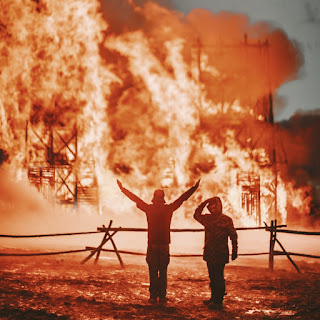
Last year, more than 17,000 structures were burned or damaged, many of them houses. More than 550 homes were lost to California's Dixie fire just this year. That's just one fire. And wildfires are not the only culprit. Every year, more than 14 million people go homeless after natural disasters around the world. Events like Katrina in 2005, for example, added 12,000 new homeless in the New Orleans area alone.
Reading about it sometimes makes me wonder what I might do if I was forced to evacuate. We make a mental inventory of what things might be worth saving. Or, in some cases, we wonder what things would be sacrificed. My home, for instance, displays a dozen or so paintings my father painted before his death. He was only 19 when he died, but his talent was phenomenal. The paintings connect me to him. But I don't see how we could save them in an emergency.
What is it about the rest of it?
Aside from family photos and other heirlooms, what about the rest of it? Most of the items in our homes will one day be reduced to an estate sale or hauled away for the trash. And yet, for most people, these possessions become as much a part of them as their memories.
Early last year, my home was broken into by one of our neighbor's kids. Every item they took was an individual violation, with the worst of them being two cars we left in the garage. One of which, my vintage Infiniti, was nearly totaled (technically totaled). So, I get it.
And yet, there is always this tiny holdover from when I was 10 years old and forced to give up everything I owned — except for three choice playthings — when I was dubiously moved from one household to another. Things are just things, you tell yourself. Let them go.
Inside 'Where There's Smoke.'
I wove several themes into the short story 'Where's There Smoke' inside 50 States. But most people who read it see what's on the surface first. One of the last families to evacuate a wildfire that will almost certainly consume their home sees presumed looters racing up to the house as they leave it behind.
I write about them and what they would do. But if it was you, what would you do?
On the one hand, the fire will likely consume the entirety of everything left behind. On the other, strangers will invade your home, taking those things you painfully surrendered.
There is a grayness here where no one answer is the right one. It's a life-defining moment, regardless what decision is made. If you continue down the hill to safety as your home is ransacked, it says something about you. If you decide to head back to the home to scare them off, that says something about you too. And so do all those supporting decisions in between.
By the way, if you are wondering what to do about wildfire, the American Red Cross has a wildfire relief fund. You can read about wildfires and the volunteers who help evacuees receive the support they need.

















